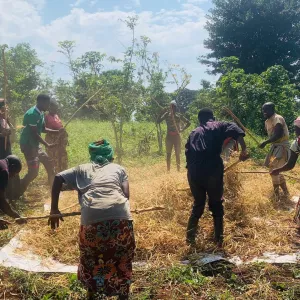DRC: Women Cultivating Resilience Through Bean Farming in Conflict Zones
Amid ongoing conflicts in the eastern Democratic Republic of Congo (DRC), an innovative agricultural initiative is cultivating hope. Centered around beans—a vital and nutritious staple—the “Beans for Women Empowerment” (B4WE) project empowers local women farmers. By positioning women at the forefront of agricultural recovery, the program tackles the dual challenges of combating hunger and rebuilding communities. Conflict and Food

DRC: Women Cultivating Resilience Through Bean Farming in Conflict Zones
Amid ongoing conflicts in the eastern Democratic Republic of Congo (DRC), an innovative agricultural initiative is cultivating hope. Centered around beans—a vital and nutritious staple—the “Beans for Women Empowerment” (B4WE) project empowers local women farmers. By positioning women at the forefront of agricultural recovery, the program tackles the dual challenges of combating hunger and rebuilding communities.
Conflict and Food Insecurity: Agriculture in Peril
For decades, the eastern provinces of the DRC, particularly North Kivu and South Kivu, have been ravaged by armed conflicts. The resurgence of clashes, notably with the M23 rebel group, has led to massive population displacements, leaving thousands of families without resources. Farmers and partners of the Beans for Women Empowerment project in the Eastern DRC (B4WE) have seen their harvests looted, and in many areas, access to fields has become impossible.

